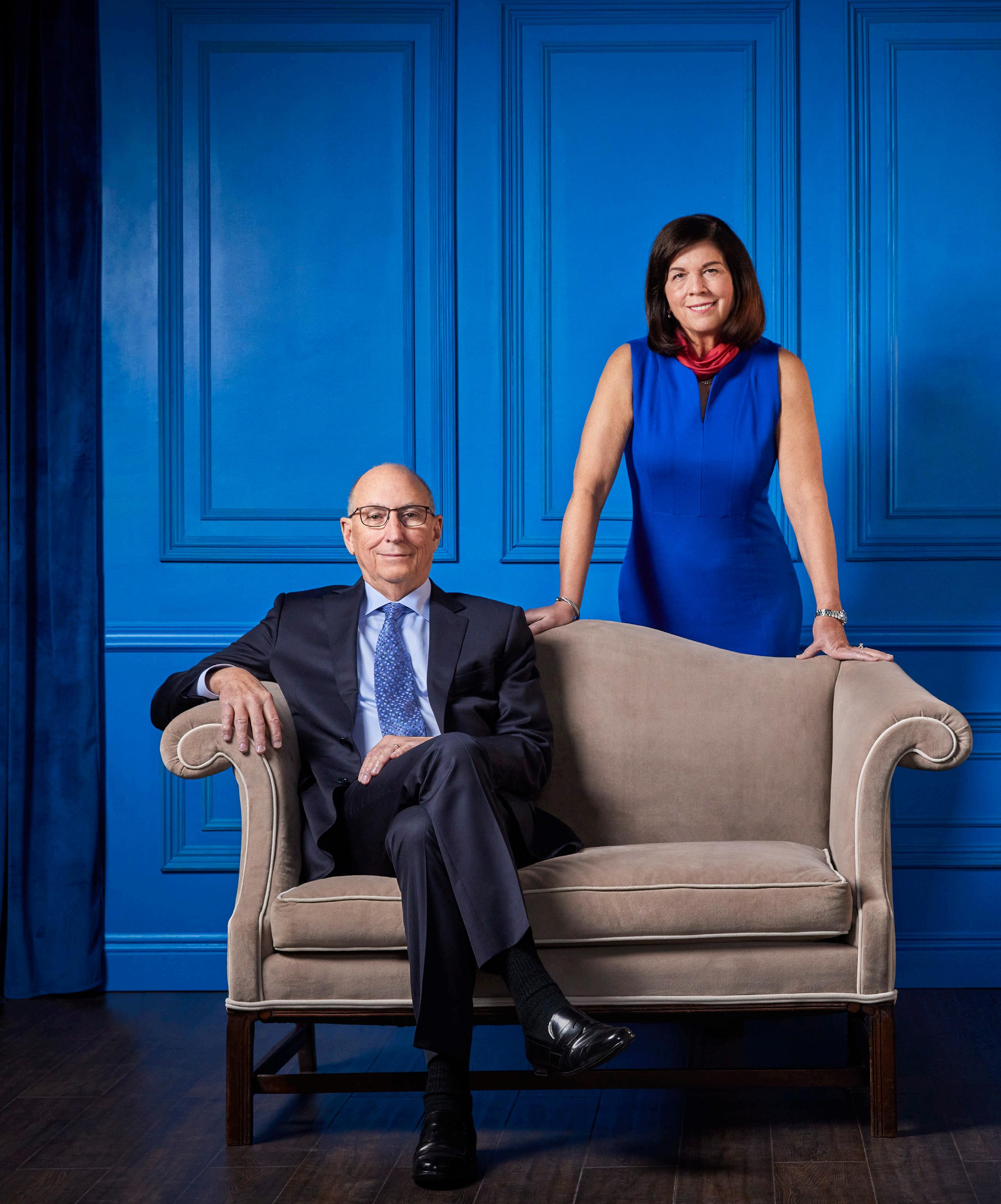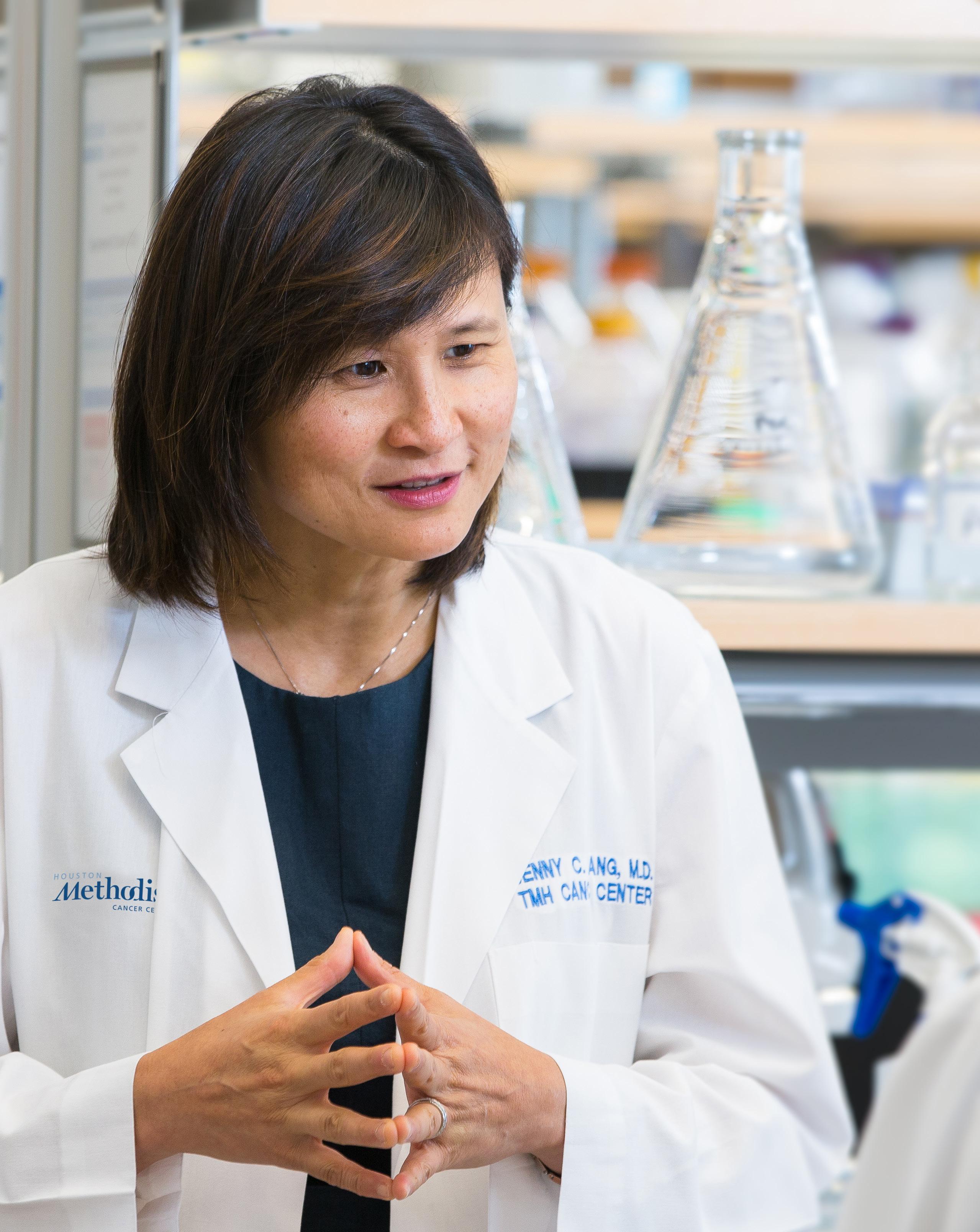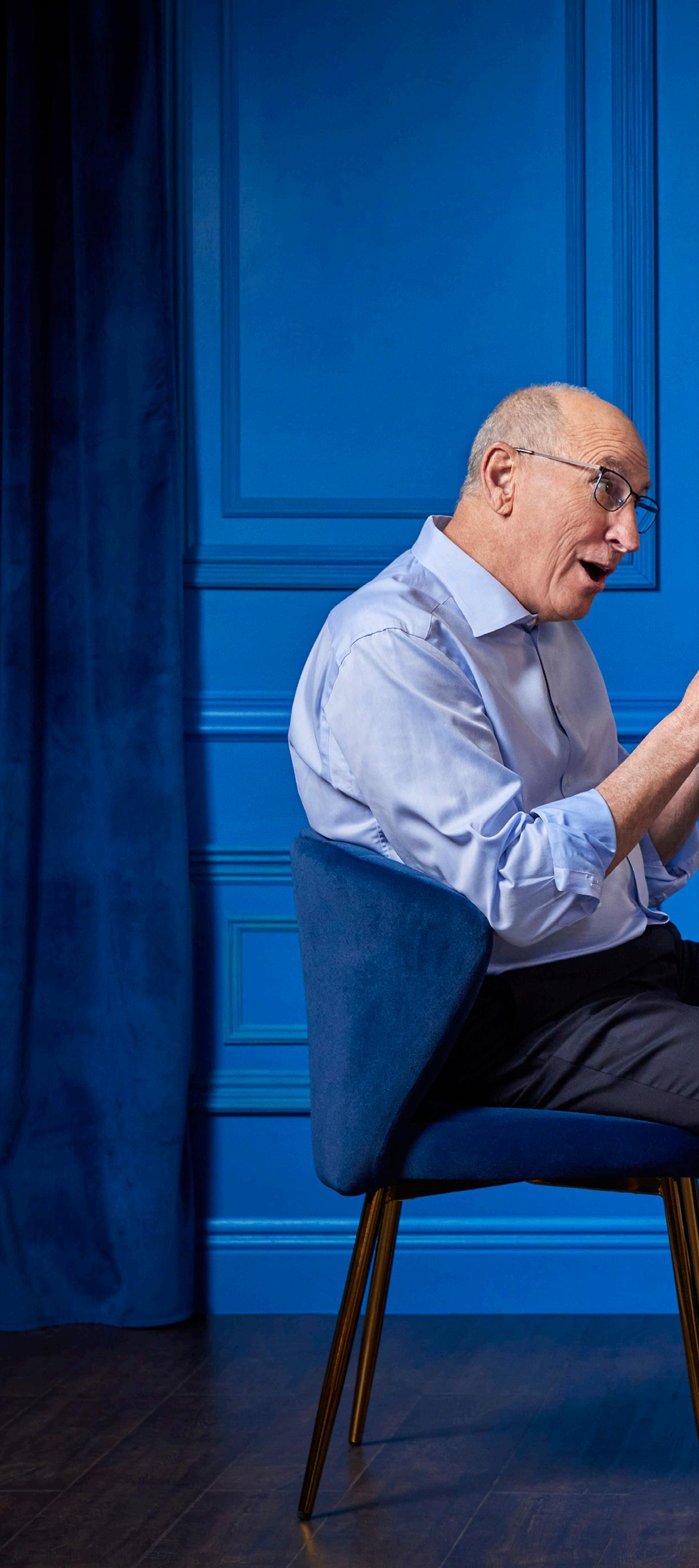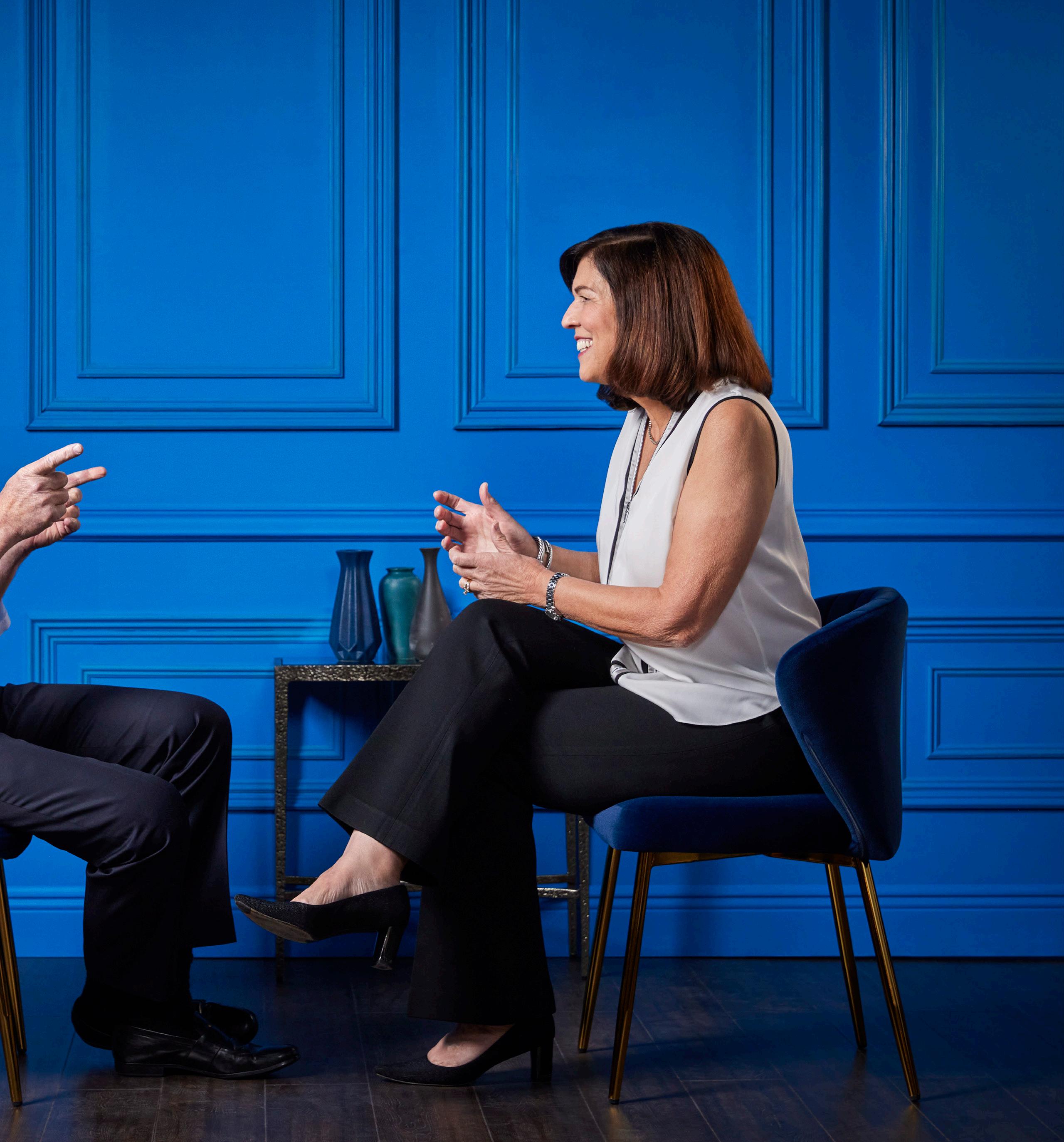
5 minute read
GIFT IN THE MAKING
GIFT 40 YEARS IN THE MAKING: Neals Seek to End Cancer Scourge
Supporters Ron Neal and Dr. Mary Neal
IN 1980, Dr. Mary Neal was completing a medical internship at Houston Methodist when she encountered a woman fighting metastatic breast cancer. The memory of that patient stayed with her, eventually leading Dr. Neal and her husband Ron Neal to make a transformational $25 million gift to support cancer initiatives at Houston Methodist. “When we were given the opportunity to do something philanthropic in cancer, it struck a chord with me because of that experience,” says Dr. Neal, a retired OB-GYN who volunteers at the San José Clinic to provide gynecological care to low-income women. “That patient died of her disease, but I remember her face. I remember everything about her.” The woman’s cancer was already advanced. The patient knew she would probably not survive but agreed to undergo an early type of immunotherapy. Unlike chemotherapy or radiation, which cause many painful side effects, immunotherapy seeks to harness the body’s own defenses against cancer. “I thought, ‘There is going to be a day when we don’t throw poison at patients — a day when we allow our own bodies to cure themselves,’” Dr. Neal says. More than 40 years later, Dr. Neal and her husband Ron Neal — a successful oil and gas entrepreneur — took a major step toward making a cancer-free future a reality. In 2021, they made one of the largest commitments ever given to Houston Methodist to support cancer research, education and patient care. In recognition of their commitment, Houston Methodist renamed its Cancer Center the Dr. Mary and Ron Neal Cancer Center.


Dr. Jenny Chang, Director of the Houston Methodist Dr. Mary and Ron Neal Cancer Center
ATTACKING CANCER ON ALL FRONTS Houston Methodist’s oncologists and researchers attack cancer on all fronts through pioneering clinical investigations in immunotherapy, nanomedicine, gene therapy and drug repositioning. The goal — which Dr. Neal hoped for decades ago — is to develop personalized, targeted treatments that eliminate cancer without harming the body. “The Neals’ incredible generosity will accelerate cancer innovation at Houston Methodist,” says Dr. Jenny Chang, the Emily Herrmann Presidential Distinguished Chair in Cancer Research at Houston Methodist and director of the Neal Cancer Center. “We are marshalling a critical mass of expertise and resources that will ultimately deliver groundbreaking new therapies and give new hope to those with the most complex and treatmentresistant tumors.” The Neals say the hospital’s distinctive combination of innovative research and patientcentered care convinced them to back its war on cancer. “We wanted to know how we could help, and making this gift was the best way to do that,” says Ron Neal. Another deciding factor rested in their unfortunate familiarity with the independent academic medical center’s cancer care offerings. A close friend lived with them for two months while undergoing pancreatic cancer treatment at Houston Methodist. Although their friend ultimately lost his fight, the Neals share they were impressed by how his doctors and nurses accomplished more than trying to treat the condition; they cared for the whole person. “Other places also have good doctors and nurses and polished floors,” Ron Neal says. “But I’ve seen Houston Methodist’s front-line workers care for patients, and we believe that care and compassion separate them from everybody else.” CONNECTING THE DOTS The Neals’ connection with Houston Methodist began through their friendship with Paula and Joseph C. “Rusty” Walter, major Houston Methodist benefactors whom the Neals cite as philanthropic inspirations. Ron met Rusty through his business associations in oil and gas, and the two couples soon began socializing and vacationing together. In 2014, the Neals joined their friends and various benefactors to help establish a chair named in memory of Emily Herrmann, a business colleague and close friend of the Walters who died from cancer. Dr. Chang currently holds that chair, and the Neals became acquainted with her through this philanthropic connection. The husband-and-wife duo visited Dr. Chang in her lab to learn more about her work, which sparked their interest in her immunotherapy research. They say their confidence in her leadership and vision was instrumental in their philanthropic commitment to the Neal Cancer Center.
“Jenny is such a smart, strong and inspirational leader,” Ron Neal says. “I really enjoy walking with great leadership. She is someone you would gladly follow.” Dr. Chang notes the Neals’ philanthropic backing may usher in a new era for the Neal Cancer Center by providing critical and strategic support on the journey to become a National Cancer Institute (NCI)-Designated Cancer Center. The gold standard for cancer programs, the NCI designation will provide Houston Methodist with additional research funding and enhanced national prominence. For the Neals, beating cancer will take a sustained effort by many philanthropic visionaries. They hope to inspire others to join the fight against a disease that touches countless families. Most of all, they want to leave a legacy to their children about the importance of serving others through the sharing of time, talent and resources.
“You can’t grab or take your way to happiness,” says Ron Neal. “You can only share and give your way to happiness.”
WITH THEIR TRANSFORMATIONAL COMMITMENT, DR. MARY AND RON NEAL WILL HELP ACHIEVE THE FOLLOWING OBJECTIVES:
Attract Brilliance — Create new endowed positions to recruit and retain highly sought-after cancer experts who embody Houston Methodist’s focus on translational research. These leading physician-scientists will be as comfortable in a laboratory as they are in an exam room.
Spur Innovation — Provide seed funding to support the most promising research projects that can impact cancer care. It will also fund research to repurpose existing FDA-approved drugs to treat cancer, such as Dr. Jenny Chang’s recently published study findings that indicate a drug used to treat cardiac failure shows promise in treating triple-negative breast cancer.
Expand Clinical Trials — Add more clinical trials at both Houston Methodist’s flagship hospital and six community hospitals, where experimental new therapies are tested before receiving FDA approval. More Houston-area cancer patients will have access to the latest treatments before they are widely available.
Train Future Oncologists — Educate and train young physician-scientists seeking a specialization in oncology, as well as create a new talent pool for pursuing creative ways to combat cancer.


THE NEALS SAY the hospital’s distinctive combination of innovative research and patient-centered care convinced them to back its war on cancer. “Other places also have good doctors and nurses and polished floors,” Ron Neal says. “But I’ve seen Houston Methodist’s front-line workers care for patients, and we believe that care and compassion separate them from everybody else.”










